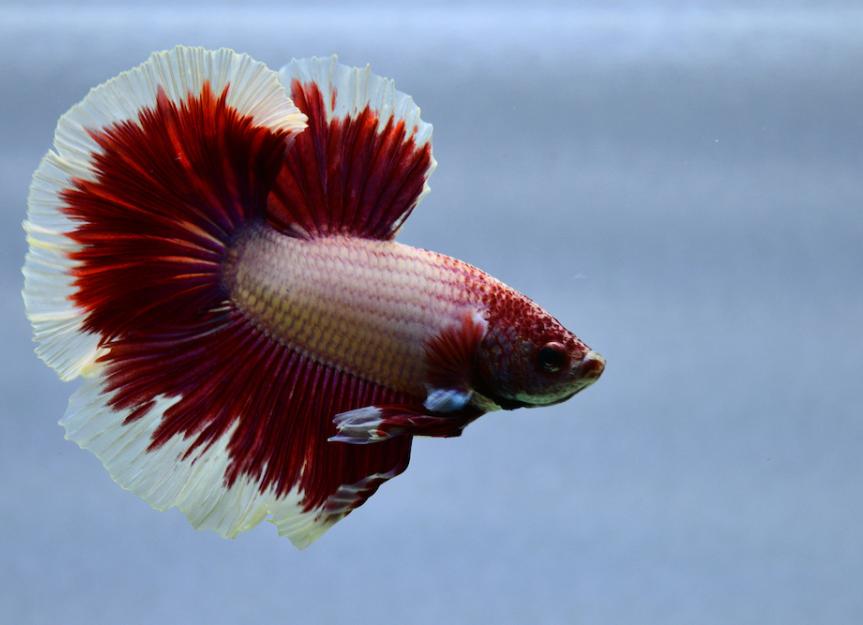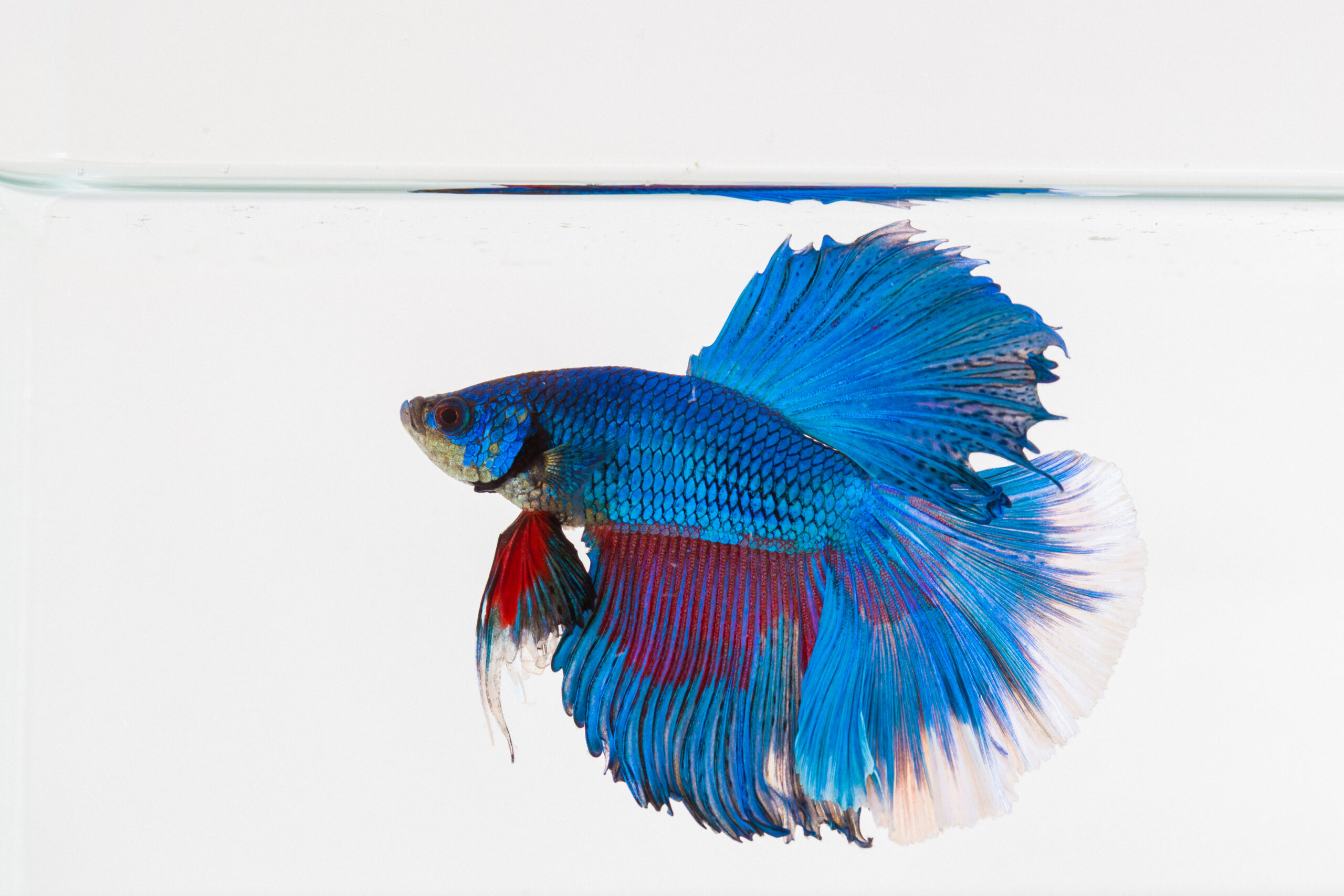All Concerning Betta Fish: Comprehending Their Distinct Requirements, Habits, and the most effective Practices for Optimal Treatment
Recognizing the one-of-a-kind needs and behaviors of Betta fish is necessary for any aquarist aiming to give optimal treatment. These captivating animals, indigenous to the cozy waters of Southeast Asia, display unique territorial propensities and require details ecological problems to prosper. From selecting the right storage tank dimension to identifying potential wellness problems, different aspects dramatically influence their well-being. As we explore these aspects even more, the effects for both newbie and skilled fish keepers become significantly evident, questioning concerning just how best to accommodate these remarkable fish in our homes.
Betta Fish Review
Although commonly admired for their vibrant colors and moving fins, Betta fish, medically called Betta splendens, are complex creatures that require details care to prosper. Stemming from Southeast Asia, these freshwater fish are recognized for their territorial nature and one-of-a-kind actions. Betta fish show sex-related dimorphism, with men displaying extra brilliant colors and longer fins than ladies.
Their hostile tendencies, specifically amongst males, necessitate mindful factor to consider when real estate them. Bettas are typically kept in single-specimen containers to avoid territorial disputes. Nevertheless, they can exist together peacefully with specific compatible species in larger community storage tanks, offered the setting meets their needs.

To guarantee optimum treatment, aquarists should recognize their unique behavior characteristics, nutritional requirements, and environment demands. betta fish. With proper attention, Betta fish can exhibit their vibrant personalities and thrive in a properly maintained fish tank setup
All-natural Environment and Setting
Betta fish grow in a varied range of all-natural habitats, primarily found in the shallow waters of Southeast Asia, including rice paddies, swamps, and slow-moving streams. These environments are identified by cozy temperatures, typically between 75 ° F and 82 ° F(24 ° C and 28 ° C ), and a pH level varying from 6.5 to 7.5, which is perfect for their wellness and health.
In their all-natural environments, Betta fish are accustomed to dense plant life, providing both sanctuary and reproducing premises. The visibility of plants such as drifting water lilies and thick lawns not only offers security from killers however also adds to the oxygenation of the water, which is vital for their breathing requirements. In addition, these environments frequently have areas of still water, enabling Betta fish to show their all-natural habits such as bubble nesting.
Recognizing the all-natural environment of Betta fish is crucial for fish tank enthusiasts. Duplicating these problems-- via water temperature level, pH balance, and the addition of live plants-- can significantly improve the total wellness and durability of these exciting fish, ensuring they thrive in a home aquarium setting.
Social Habits and Interactions
Recognizing the social actions and communications of Betta fish is crucial for effective aquarium administration. Betta fish, or Siamese battling fish, are recognized for their distinct behavior characteristics, characterized largely by territoriality and hostility.
Conversely, female Bettas exhibit much less hostile habits and can exist together in groups, called sororities, if introduced appropriately. Nonetheless, it is vital to monitor their interactions very closely, as hierarchy and dominance can result in disputes. Comprehending the characteristics within a Betta area is essential; developing concealing areas and guaranteeing enough room can reduce aggression.
In enhancement, Betta fish might likewise display curiosity and social habits in the direction of various other species. While they can coexist with certain non-aggressive container companions, it is necessary to pick compatible varieties to prevent tension and hostility. On the whole, identifying these social communications is essential to cultivating a harmonious aquarium environment for Betta fish.
Important Care Guidelines
Offering correct look after Betta fish is essential to their wellness and health. To ensure a flourishing environment, it is necessary to keep optimum water problems. The water temperature level need to be kept in between 76 ° F and 82 ° F(24 ° C to 28 ° C), while pH levels need to range from 6.5 to 7.5. Normal water modifications-- around 25% weekly-- help maintain water quality.
Betta fish call for an appropriate storage tank dimension; a minimum of 5 gallons is recommended to provide sufficient room for swimming and hiding. Include designs and plants to produce a stimulating atmosphere, however prevent sharp objects visite site that might damage their delicate fins.

Lastly, make sure the tank is furnished with a filter to maintain the water tidy, yet make use of a gentle filter to stay clear of strong currents that can emphasize the fish. By complying with these important treatment standards, owners can advertise a healthy and dynamic Betta fish.
Common Health Issues and Solutions
In the care of Betta fish, understanding of usual health issues is crucial for maintaining their wellness. One common concern is fin rot, often brought on by inadequate water top quality or microbial infection. Signs consist of frayed or blemished fins. To deal with fin rot, enhance water conditions and take into consideration making use of a broad-spectrum antibiotic.
An additional usual disorder is ich, a parasitical infection defined by white spots on the fish's body (betta fish). Therapy includes enhancing water temperature and including aquarium salt to the tank, as this can help eliminate the parasite
Swim bladder condition is also frequently observed, causing buoyancy problems. This condition might emerge from overfeeding or bowel irregularity. A fasting period of 24-48 hours, complied with by a diet plan of blanched peas, can offer relief.
Lastly, bettas may experience velvet disease, suggested by a gold dust-like appearance on their skin. Therapy normally needs drug especially my review here designed for external bloodsuckers, along with improved tank health.
Normal surveillance of water parameters, preserving a clean environment, and giving a well balanced diet plan are important safety nets. By addressing these health issues promptly, Betta fish can lead much healthier, much more dynamic lives.
Verdict
In recap, effective betta fish treatment requires an understanding of their special needs and habits. Normal tracking of health and wellness and water quality, along with a balanced diet plan, contributes visit this website to the longevity and vibrancy of betta fish.